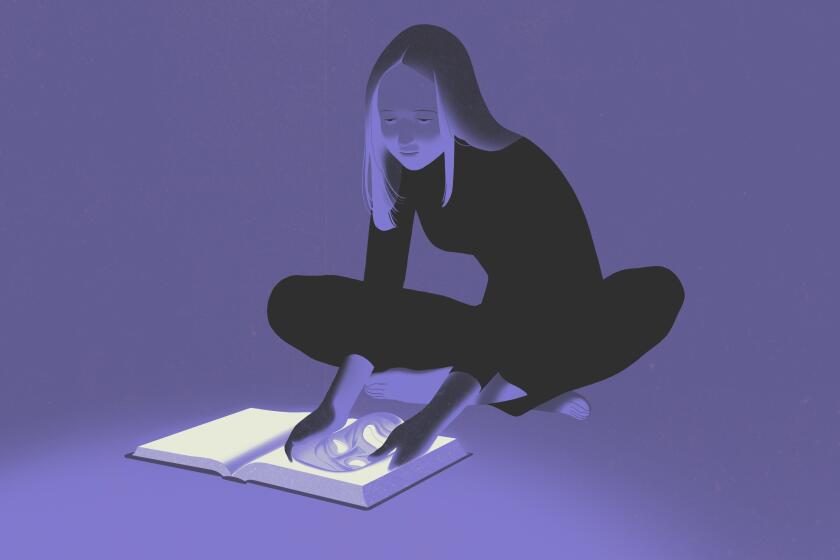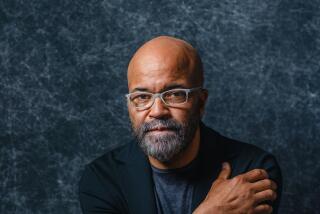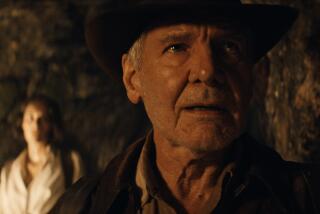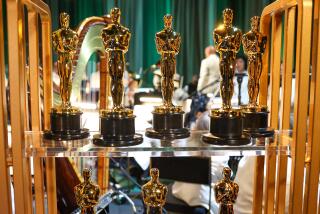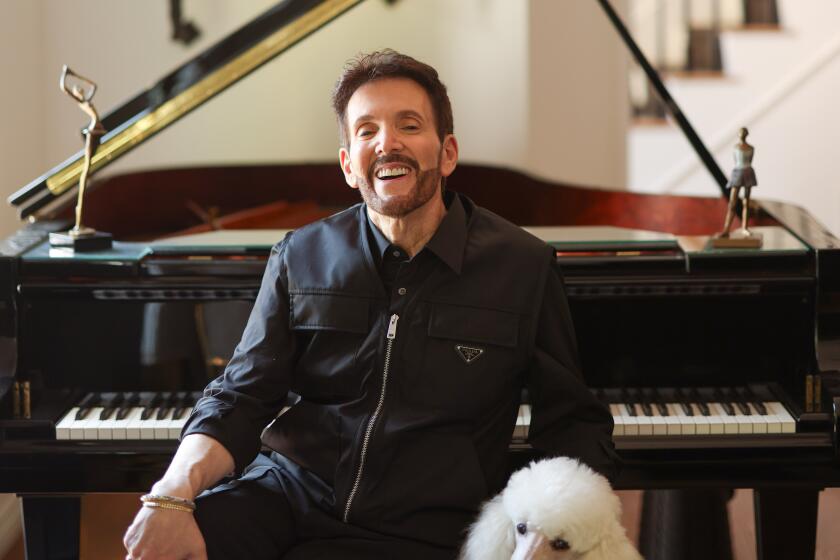Why Joaquin Phoenix’s Oscar speech doesn’t seem so crazy in our coronavirus times
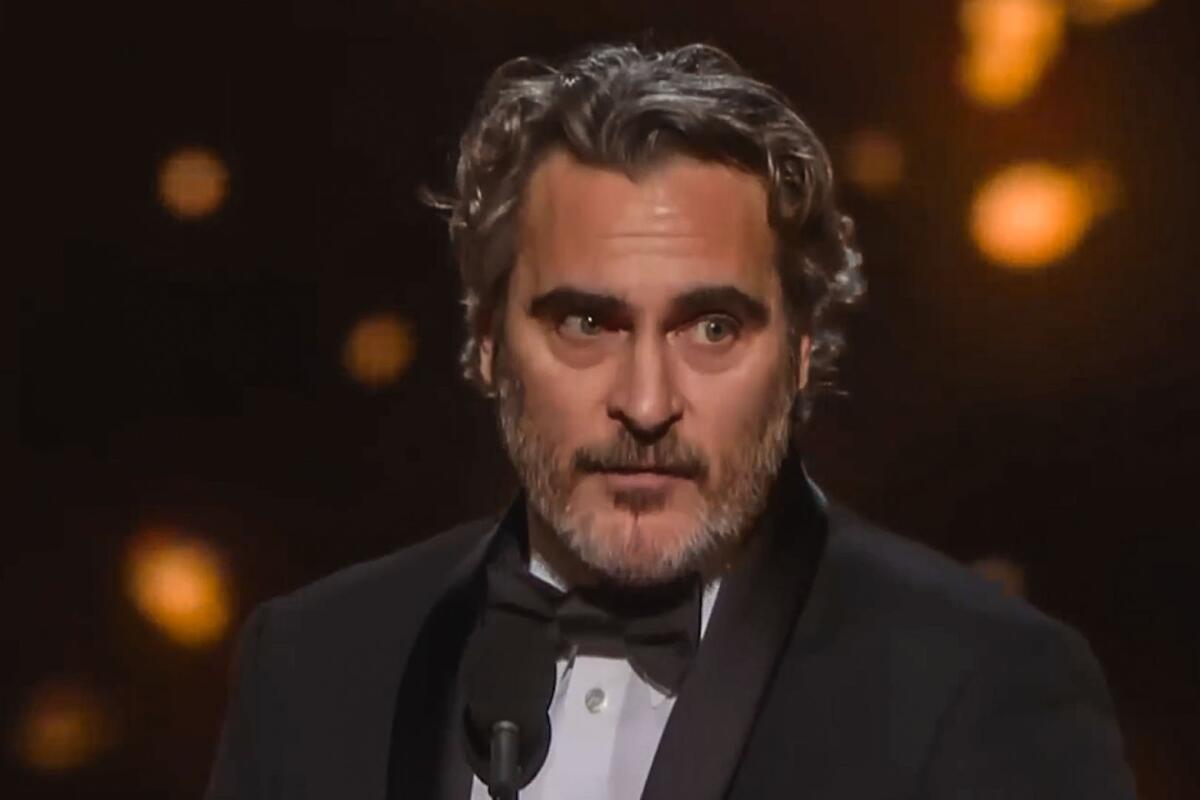
Although it may seem like a lifetime ago, a mere two months have passed since Joaquin Phoenix accepted his Oscar for his virtuoso performance in “Joker” with a speech about cows that had many in the bejeweled audience writhing in embarrassment. Why was this famously difficult actor interrupting the ceremony to haltingly speak about the distress of livestock?
I think that we’ve become very disconnected from the natural world and many of us, what we’re guilty of, is an egocentric worldview, the belief that we’re the center of the universe. We go into the natural world and we plunder it for its resources. We feel entitled to artificially inseminate a cow and when she gives birth we steal her baby even though her cries of anguish are unmistakable.
And then we take her milk that’s intended for her calf and we put it in our coffee and our cereal. And I think we fear the idea of personal change because we think that we have to sacrifice something, to give something up. But human beings at our best are so inventive and creative and ingenious, and I think that when we use love and compassion as our guiding principles, we can create, develop and implement systems of change that are beneficial to all sentient beings and to the environment.
These words caused Hollywood A-listers to shift awkwardly in their seats and, overriding their own instincts, avert their eyes from hovering cameras. Their reactions were completely legible: If he had to get political, couldn’t he go after Donald Trump? Does he really expect us to give up milk? Why, for the love of God, is he talking about artificial insemination and cows when we’re dressed to the nines in Chanel and Dior?
Twitter naturally had a lot to sarcastically say. At the time, I defended Phoenix, suggesting that his ethical commitments and heightened sensitivity weren’t unrelated to his acting brilliance. Maybe the reason he was winning another award had something to do with his highly developed capacity to inhabit another life from the inside out?
Granted, it was a weird acceptance speech. But no one wanted to think too much about a possible cause of the weirdness: the sheer frustration with our refusal to recognize the suffering we’re collectively inflicting.
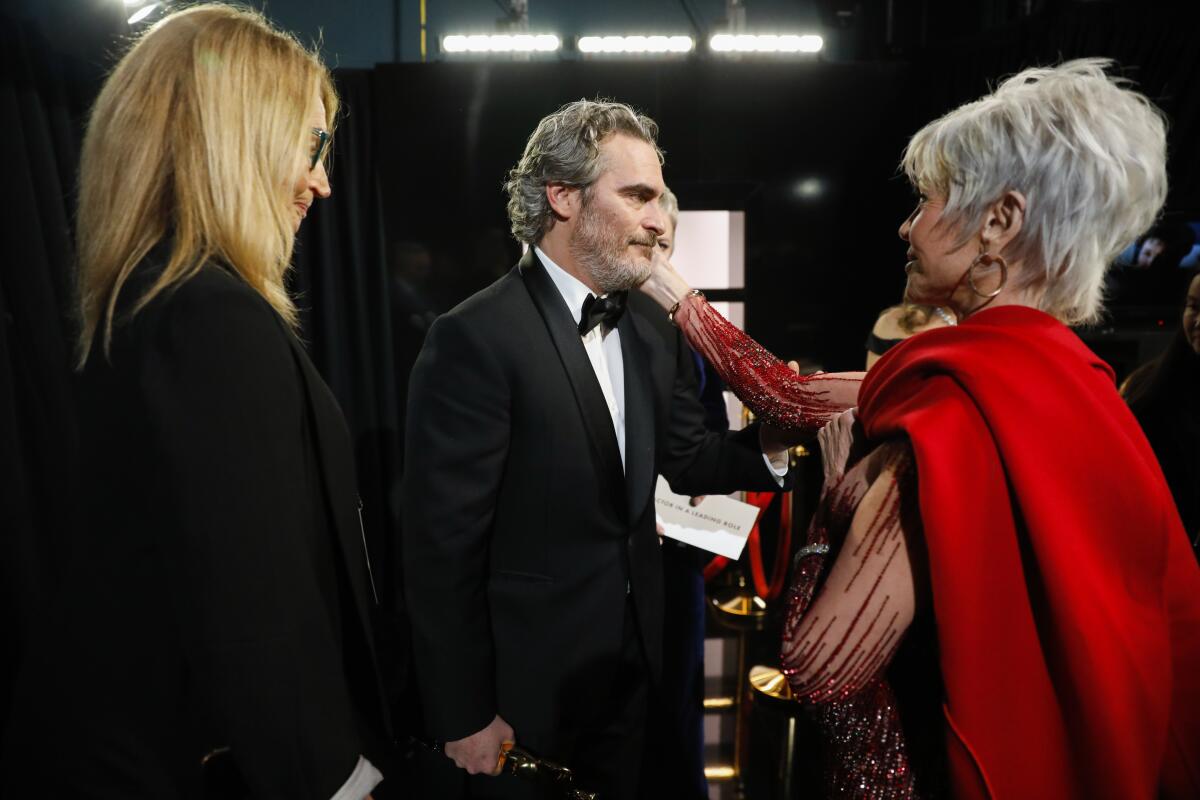
Phoenix’s words came back to me while I was contemplating a line from an Ibsen play that has lodged itself in my brain since we’ve been under stay-at-home orders. In “The Wild Duck,” Old Ekdal, hearing that the trees in his old hunting grounds have been cut down, warns that “the woods take revenge.”
The coronavirus pandemic has me wondering if animals might be having theirs.
Not much is definitively known about COVID-19, but scientists are clear that this is a zoonotic disease, a classification for pathogens that make the leap from animals to humans. Whether this novel coronavirus was launched in a wet market in Wuhan, China, is a matter of debate. The sale and slaughter of exotic animals may have provided a link between bats, the suspected source of the virus, and the cells lining our respiratory tracts. But where scientists raise questions, politicians are quick to assign blame.
Whatever the route of initial transmission, it seems likely our predatory relationship to the natural world has played a role. Humans congratulate themselves on being, in Shakespeare’s words, “the paragon of animals” — “how noble in reason and how infinite in faculty!” Yet the planet’s most intelligent species has treated the Earth as a resource to be ransacked for short-term gain, regardless of the long-term harms.
Not even global warming has roused us from our suicidal folly. It’s doubtful a pandemic will do what rising sea levels, devastating weather events and ruinous wildfires have been unable to accomplish. But now that the world is in shutdown, let us take a moment to reflect on the way culture, long complicit in concealing our nature, is our only chance at rescuing our consciousness.
In Chekhov’s “Uncle Vanya,” Astrov, the lonely doctor whose great passion (beyond vodka) is forestry, delivers a monologue condemning the way the land is being plundered for fuel when alternative sources exist. His rant has as much effect on the estate owner he’s talking to as Phoenix’s had on studio executives, but it’s astonishing how these words from an 1897 play resonate today:
“Man has been endowed with reason, with the power to create, so that he can add to what he’s been given. But up to now he hasn’t been a creator, only a destroyer. Forests keep disappearing, rivers dry up, wildlife’s become extinct, the climate’s ruined and the land grows poorer and uglier every day.”
Astrov might have added that new diseases are emerging from our encroachment into areas that humans have no business occupying. The politics of these issues, which have profound economic consequences, aren’t going to be solved by artists. But I want to once again echo an appeal that the biologist Edward O. Wilson made in his 2014 book “The Meaning of Human Existence” that the humanities and the creative arts must stop pretending that science is not in their purview. Humanity can no longer afford to be mystically removed from its biological context. Our future hinges on recognizing our origins.
If nothing else, Wilson argued, there must be an awareness that “human impact on biodiversity … is an attack on ourselves.” Great realistic playwrights, such as Ibsen and Chekhov, have allowed the wilder truths of the outdoors to make cameo appearances in their drawing rooms. But in literature, cinema and drama, the societal backdrop has taken precedence over the web of life. As normal as that may seem, it reinforces a mental fault that Nietzsche identified in our thinking — the tendency to detach human nature from nature itself.
I’m not a vegetarian, never mind a vegan, and while I love animals and have two rescue cats who boss me around all day, I’m hardly an animal rights activist. What I am is self-interested. I want to live in a way that reduces climatic chaos and pandemic horror. I want us to use the creative intelligence that, as Astrov contends, allows us to add to the world rather than to steadily subtract from it.
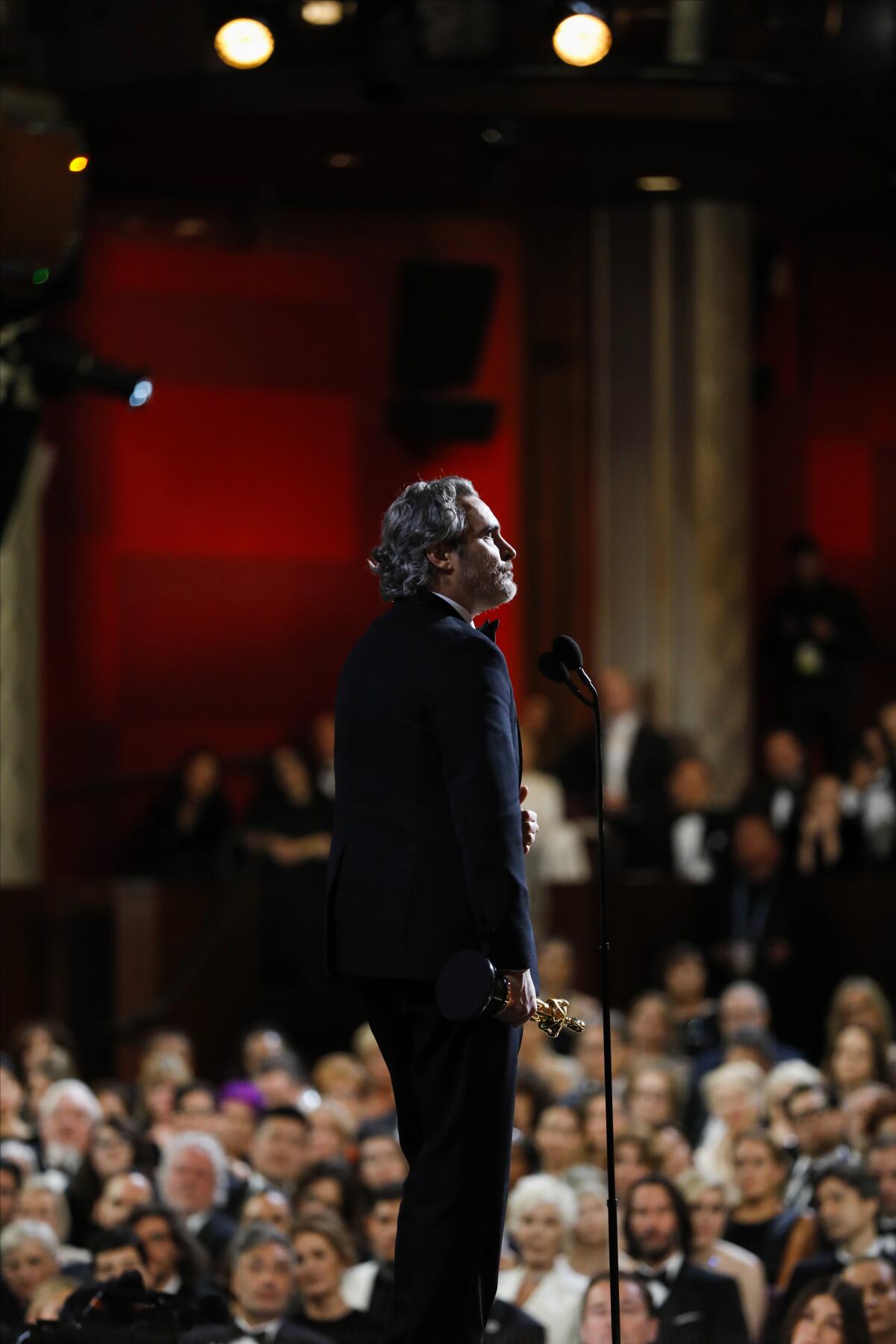
I hope there are some in the movie business who can separate Phoenix’s kooky delivery from his heartfelt sentiments. When film, TV and theater resume, the world will seem at once smaller and scarier. We need our artists to deploy something more powerful than their activism — their artistry — to awaken our species to the interconnectedness of life before we end up on the endangered list.
Caryl Churchill, in my opinion the greatest living playwright in the English language, wrote an enigmatic play called “Escaped Alone” about a group of older women gathered in a backyard as the world crashes and burns around them. A world in which money leaks toxic chemicals, dog owners are fined if they don’t clean up their pet’s vomit and gas masks are available in a variety of colors through the health service.
The image of a planet sickened to death is a fictional exaggeration that each day becomes shockingly less far-fetched. The women, all in their 70s, make banal small talk that cryptically glimpses a reality that fills them with a “terrible rage” they have no choice but to screen out. (Before all scheduling was thrown out the window, the Fountain Theatre announced it would produce the Los Angeles premiere of “Escaped Alone” this fall.)
Churchill is one of the few artists able to keep up with the dystopian pace of reality. Yes, apocalyptic narratives are in abundance, and no one can say that Steven Soderbergh didn’t warn us nine years ago in “Contagion.” But the quasi-religious escapism that pervades the genre seems like a cop-out when science fiction has so much real science to work with.
Many are calling this pandemic unimaginable. Had artists taken Hamlet’s advice of holding the mirror up to nature more literally, perhaps the tragic situation we find ourselves in wouldn’t be such a surprise.
Don’t let the coronavirus outbreak obscure the lessons of theater, the connection to great thinkers, the inspiration that comes from the art of creation.
More to Read
The biggest entertainment stories
Get our big stories about Hollywood, film, television, music, arts, culture and more right in your inbox as soon as they publish.
You may occasionally receive promotional content from the Los Angeles Times.
